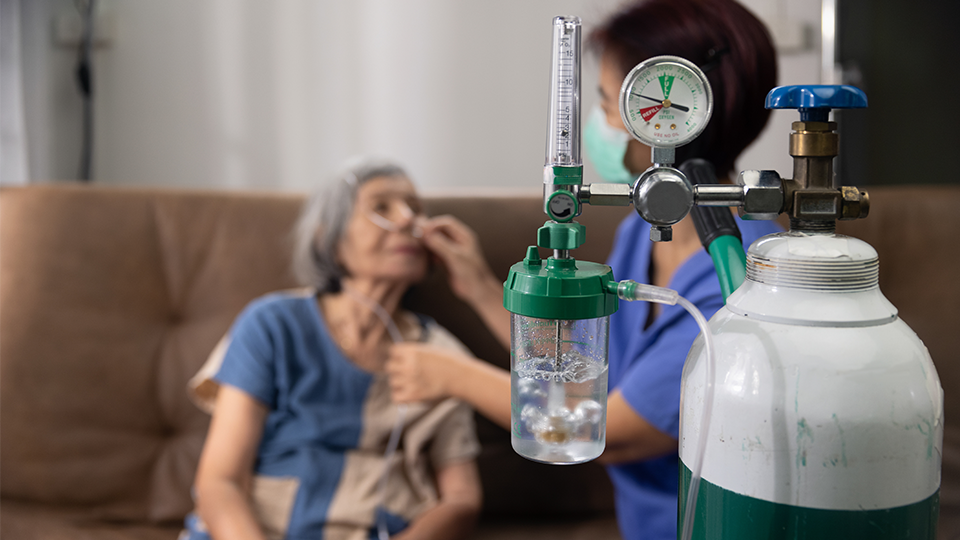REMAP-ing a new approach to treat community-acquired pneumonia
Published: 01 Feb 2023

Caption: Elderly woman wearing oxygen nasal canula at home. Copyright: toa55
A new clinical trial known as a Randomised, Embedded, Multifactoral, Adaptive Platform on Community-Acquired Pneumonia, or REMAP-CAP, was conceived in 2019. This innovative, novel clinical trial uses an adaptive study trial design to evaluate a number of treatment options suited to each unique patient, simultaneously and efficiently, especially during time of pandemic.
REMAP-CAP was established by the REMAP-CAP network, a global network of over 250 leading scientific experts, institutions and research networks, to study community-acquired pneumonia.
Community-acquired pneumonia is one of the leading causes of death in Singapore and worldwide. It is an inflammation of the lungs caused by a bacterial or viral respiratory infection.
Community-acquired pneumonia has been identified as one of the effects that sufferers of COVID-19 or influenza experienced, which gives more reason to study community-acquired pneumonia more intensively.
For patients with community-acquired pneumonia who have been admitted into the Intensive Care Unit, a pre-determined dose of steroids would be administered as the typical course of treatment. However, not all patients respond well to the standard treatment.
In the REMAP-CAP global trial, eligible patients will be randomly given one intervention in each of one or more categories of treatment – namely, Antibiotic trial, Antiviral trial or Steroid trial. These interventions are known to be the most optimum therapies for severe pneumonia, and can be tested simultaneously.
This study trial aims to understand if the benefits of steroids would only be seen when septic shock or circulatory failure develops, or whether all patients with severe pneumonia requiring respiratory support can benefit from steroids.
The ultimate goal of conducting this large multinational study aims to identify which combinations of therapies patients truly benefit from and eliminate unnecessary therapies which does not help. It can be difficult to conduct study trials in critically ill patients, but they are the cohort who would benefit the most from proven evidence-based treatments.
The team remains positive that this trial can make a huge difference to patient care and treatment outcomes globally when more data becomes available.
Singapore is the first country in the region to initiate this trial, with the National University Hospital, Singapore General Hospital and Tan Tock Seng Hospital being the first few health institutions to take the lead in rolling out this clinical trial.
News Coverage

